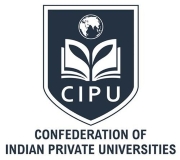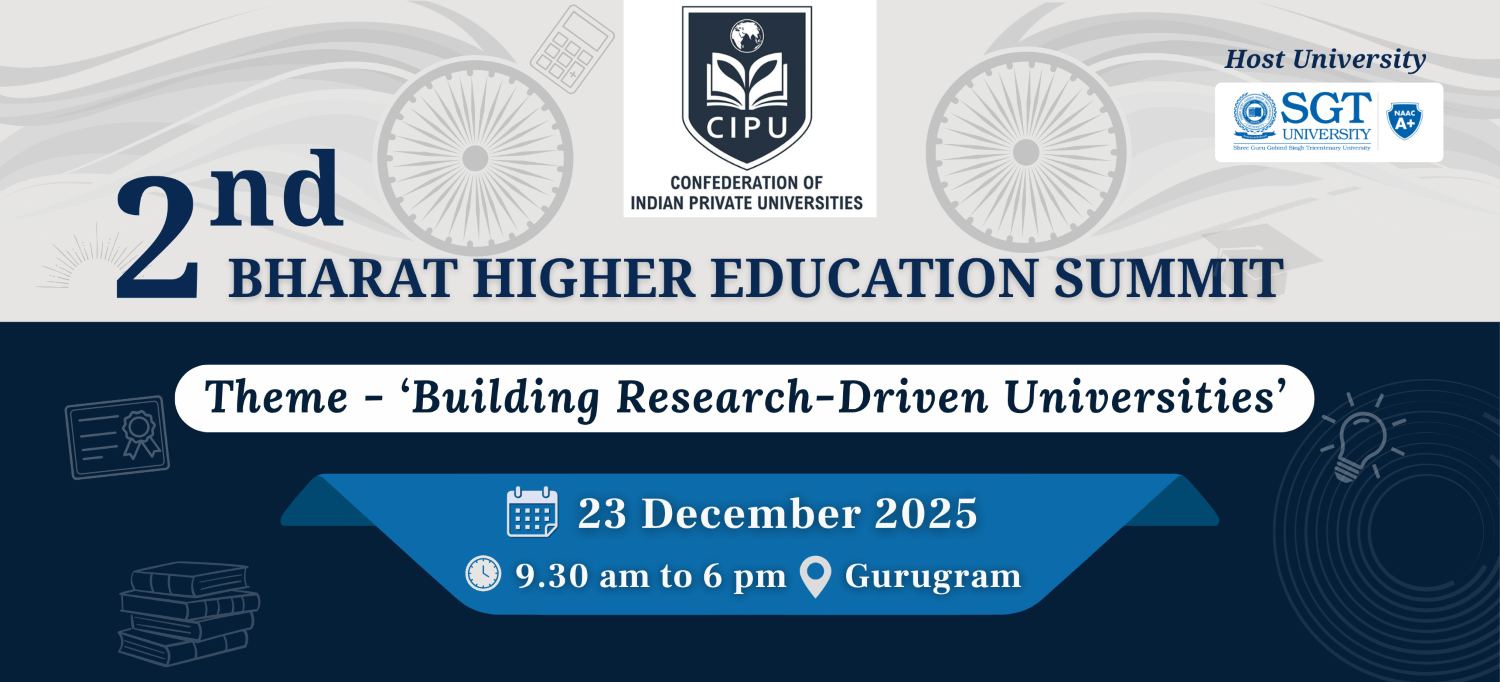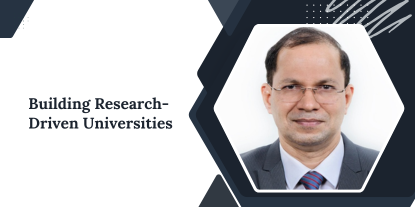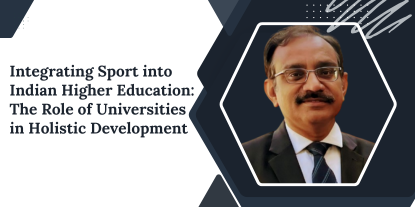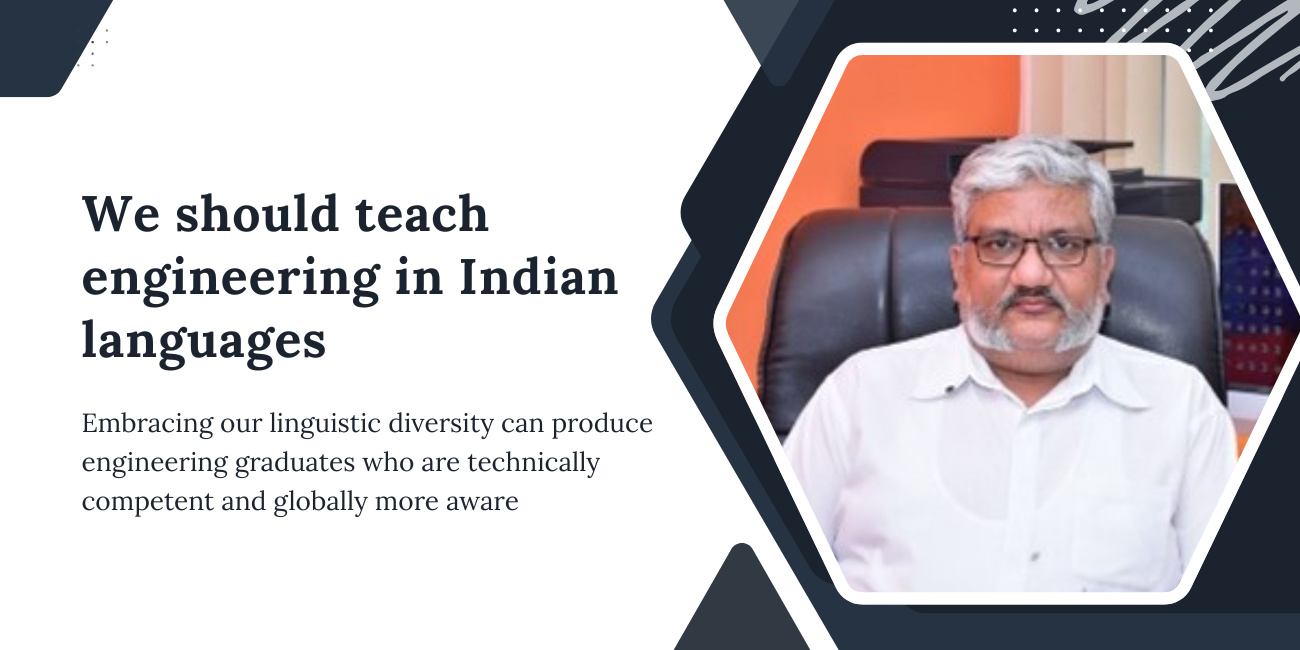
|
Prof. (Dr.) Avinash Kumar Agarwal
Director Indian Institute of Technology (IIT), Jodhpur |

|
Prof. (Dr.) Rajlaxmi Chouhan
Associate Professor | Electrical Engineering Indian Institute of Technology (IIT), Jodhpur |
In the heart of every engineering classroom in India, a quiet yet significant challenge unfolds each day — a challenge rooted not in technical complexity or curriculum overload but in the language of delivery of instruction and its absorption.
In a country as linguistically diverse as ours — with over 1,369 recorded mother tongues and 122 major languages, the question of how language influences learning outcomes in technical education is becoming more relevant than ever.
Does the dominance of English in engineering education create barriers for our students? Can we become Viksit Bharat solely based on technical education in English? Are we not promoting apartheid because we are obsessed with English? Are we being inclusive enough by ignoring 94 per cent of the Indian population that is not literate in English?
We must confront these questions as educators, academicians, responsible citizens, and as a nation striving to become “Vishwa Guru” and a global leader in technology and innovation.
Lingering language divide
English has been Independent India’s language of higher/technical education/learning for decades. It is seen as a passport to global opportunities. Yet, for many students, especially those from rural and semi-urban backgrounds, this language is a serious obstacle rather than a tool, blocking their career growth because of their lack of proficiency in English.
We have seen this struggle first hand. Brilliant students with exceptional analytical minds falter because the language of instruction alienates them. They are not less capable, but their potential is hidden behind a wall of unfamiliar words and technical jargon delivered in a language they are still trying to master, mostly unsuccessfully.
The National Education Policy (NEP) 2020 recognises the urgency of addressing this issue through its transformative vision. This is a bold and necessary step, as several studies show that students learn much better when taught in their Matra Bhasha, particularly when it comes to grasping complex concepts. The NEP’s vision is to preserve linguistic diversity and give every student an equal opportunity to thrive and excel.
But here lies the paradox: while we must empower students to learn in their native languages, we cannot ignore the reality that English is the global language of science, technology, and business.
The path forward
Thankfully, we live in an era where technology can be our greatest ally in solving this dogma. AI-powered tools can translate lecture content in real time, making technical concepts more accessible to students in their preferred language. Multilingual learning platforms and collaborative projects can leverage the diversity in our classrooms as a resource rather than a hurdle.
At IITs and other institutions, we continue to explore initiatives to create bilingual learning resources and encourage peer learning groups that support multilingual comprehension. The goal is to create an ecosystem where language is not a constraint but a catalyst for deeper learning.
While some might argue that insisting on multilingual education in engineering could dilute our global competitiveness, we view this challenge differently.
On the contrary, embracing our linguistic diversity can produce engineering graduates who are technically more competent, culturally more adaptive and globally more aware, who can think across literal and metaphorical boundaries.
IIT Jodhpur’s bold initiative to allow first-year B.Tech. students have the option to select their first-year courses in either Hindi or English, which has produced excellent and unprecedented results in its pilot deployment in AY 24-25 Semester I.
Situated in the Hindi belt of India, with over 80 per cent of students coming from Hindi-speaking backgrounds, the option of additional choice of medium of instruction as Hindi was strategic and student-centred at IIT Jodhpur.
This initiative aimed to allow a smoother transition of students from the Hindi medium into the competitive instructional environment of an IIT. The response from students was overwhelmingly positive. They embraced this initiative with open arms, expressing deep gratitude and often sharing how this support has lifted a long-standing weight off their shoulders, giving them renewed confidence, learning experience and belonging.
As B.Tech. first-year student Kanak Khandelwal puts it, “We can ask questions more easily in Hindi because we think in Hindi too”. The results from the first semester have shown that students from the vernacular medium now have a great shot at getting top grades, which were inaccessible to them earlier.
India’s engineers are already at the forefront of solving global challenges. Imagine the potential we could unlock if we gave every aspiring engineer all the tools to learn in the language, they understand best.
Imagine the innovations that would emerge from classrooms where diverse perspectives, rooted in diverse languages, converge to create something extraordinary.
Language, a bridge
India stands at a pivotal moment. Our education system is transforming, and our choices shape our nation’s future today. Multilingualism is not a challenge to be overcome; it is a resource to be nurtured. It reflects who we are: a country that thrives in diversity and finds strength in its differences.
Let us embrace this diversity in our classrooms in institutions of higher learning for the sake of inclusivity of 94 per cent of the population, which is left out of this journey of “Vikas” because of their handicap in English as a language.
As Institutes of National Importance, IITs are responsible and able to lead transformative changes. In the end, engineering is not just about formulas and algorithms. It is about building solutions, shaping lives, and creating a world where every voice in every language can be heard and contribute to nation-building.
Agarwal is Director, IIT-Jodhpur; Chouhan is an Associate Professor and Head of the Center for Education & Technology for Education at IIT Jodhpur
